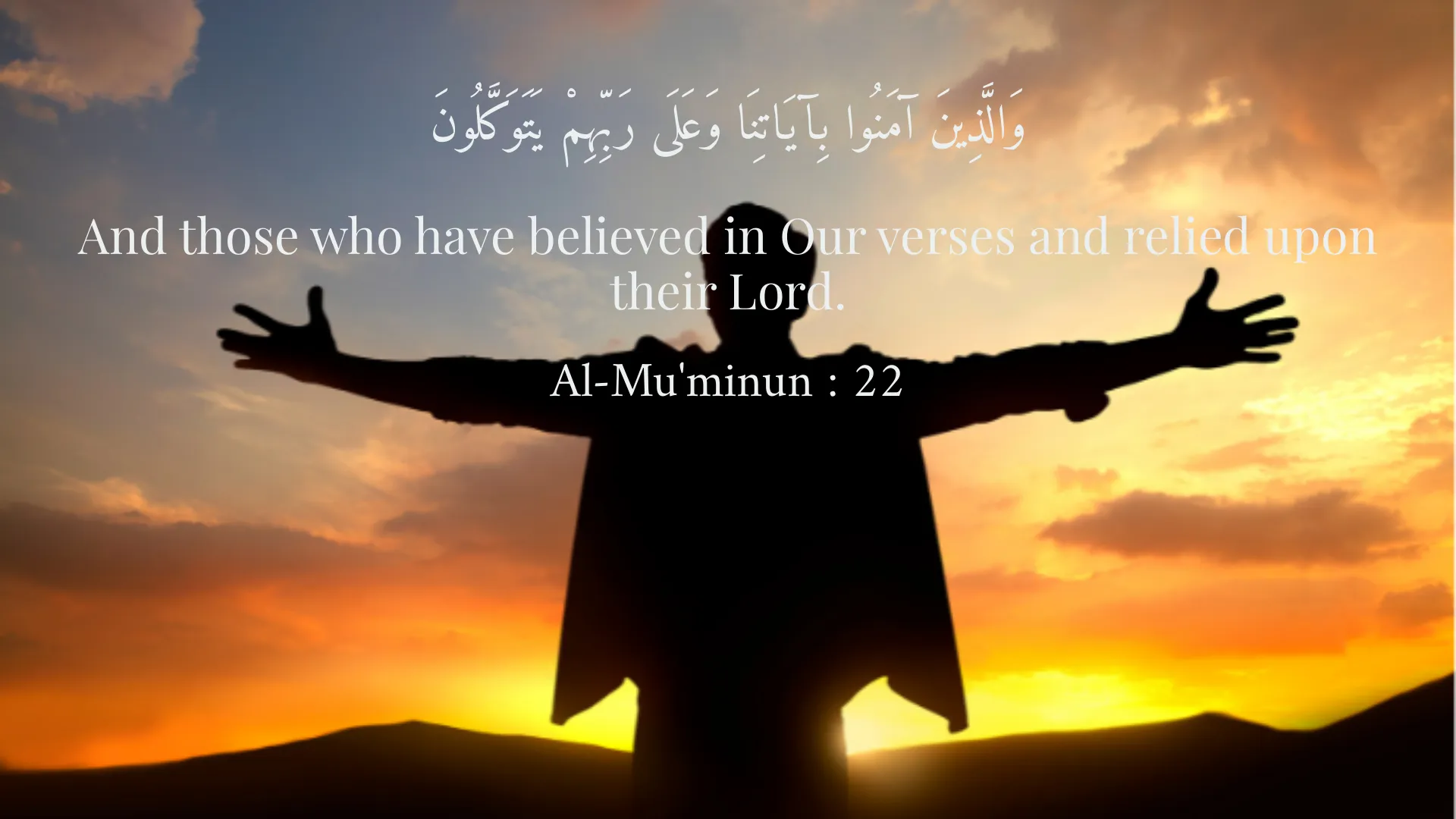Quranic Answer

The topic of death is an intrinsic and inevitable aspect of human life, often stirring a profound emotional response. Philosophers, theologians, and scholars have long debated the meaning of life and death, especially in the context of belief systems. In the Holy Quran, death is not merely depicted as an endpoint; rather, it is framed within a larger narrative about faith, existence, and the hereafter. This perspective offers a unique lens through which individuals can confront the often frightening concept of mortality. One of the significant declarations regarding death and faith can be found in Surah Al-Mu'minun. In this Surah, Allah highlights that humans possess an innate predisposition to fear death and the process of disappearance. This acknowledgment resonates deeply with many, as the fear of the unknown is a universal human experience. Death, as the ultimate unknown, poses profound existential questions that can be daunting for many individuals. The dread of nonexistence, the unknown fate that awaits after death, and the profound loss that accompanies the death of loved ones is a source of anxiety that can permeate lives. Verse 22 of Surah Al-Mu'minun reinforces the role of faith in alleviating these fears. Allah states, 'And those who have believed in Our verses and relied upon their Lord.' This verse suggests that faith in Allah and His revelations cultivates trust and assurance in the hearts of believers. By placing their faith in a higher power, individuals can find comfort and solace in the belief that there is more to existence than mere physical life. The assurance that God is in control of life and death can pacify the human heart, mitigating the fear that naturally accompanies thoughts of mortality. Moreover, faith acts as a buffer against the trials and tribulations that life presents, including the inevitability of death. In Surah Al-Baqarah, verse 215, Allah states, 'And do not waste your deeds, and whoever comes to his Lord with a pure heart, will have his reward.' This emphasizes the importance of perseverance and patience, or 'sabr,' in the face of challenges. The verse effectively communicates that steadfast faith can aid believers in handling adversities, including the challenge posed by the impending reality of death. This form of spiritual resilience underscores the fact that with faith, believers are imbued with the strength to confront their mortality with dignity and fortitude. Furthermore, belief in God serves a dual purpose: it provides hope and extends the human understanding of existence beyond the confines of this world. With faith, believers are encouraged to seek divine mercy and forgiveness. The notion of an afterlife—a fundamental tenet of many religious beliefs, including Islam—allows individuals to view death not as an endpoint, but as a transition to a different realm of existence. For believers, the promise of reward in the afterlife creates a framework through which the fears associated with death can be transformed into expectations of reunification with loved ones, peace, and tranquility. Therefore, without the guiding light of faith, the human experience with death can be reductively characterized by insecurity and overwhelming fear. In light of this, it becomes increasingly clear that belief in God, coupled with the hope for divine mercy, plays a crucial role in enabling individuals to navigate their apprehensions surrounding death. Moreover, faith encourages individuals to reflect on their lives, instilling a sense of purpose and direction. When people are conscious of their ultimate destination—whether it be heaven or hell—this awareness can often lead to positive behavioral changes and a deeper commitment to spirituality. Engaging in acts of kindness, seeking forgiveness, and striving for moral excellence are all aspects of a life lived with consciousness of the afterlife. This intentionality fuels a cycle of positive reinforcement, whereby the understanding of mortality drives individuals towards revelations about the necessity of a virtuous life. On a broader societal level, belief in an afterlife can foster community and shared values among individuals. Cultural practices surrounding death and mourning often reflect religious convictions and the shared belief in a peaceful afterlife can bring together families and communities during times of loss. Rituals, ceremonies, and communal prayers are typically designed not only to honor the deceased but to affirm a collective faith in the promise of a new existence beyond this life. These traditions can create comforting frameworks through which individuals cope with their grief and foster a sense of belonging even amidst personal loss. In conclusion, the relationship between death and faith in the Quran presents a paradigm through which individuals can interpret and confront their fears of mortality. The exploration of death is intricately linked with a profound understanding of faith, as belief in God, His mercy, and the concept of an afterlife can significantly mitigate the fear associated with death. As individuals cultivate their spiritual beliefs, they can find peace in the face of the unknown, allowing them to perceive death not with dread, but with acceptance and tranquility. The essential takeaway from these teachings points to the fact that belief does not eliminate the fear of death; rather, it offers the tools and frameworks necessary to confront it thoughtfully and courageously. Ultimately, faith transforms existential uncertainty into a journey filled with hope, purpose, and everlasting significance.
Related Verses
وَالَّذِينَ آمَنُوا بِآيَاتِنَا وَعَلَى رَبِّهِمْ يَتَوَكَّلُونَ
And those who have believed in Our verses and relied upon their Lord.
Al-Mu'minun : 22
يَسْأَلُونَكَ مَاذَا يُنفِقُونَ قُلْ مَا أَنفَقْتُم مِّنْ خَيْرٍ فَلِلْوَالِدَيْنِ وَالْأَقْرَبِينَ
They ask you what they should spend. Say, 'Whatever good you spend is for parents and relatives.'
Al-Baqarah : 215
Short Story
Once upon a time, there was a man named Haidar who always feared death. He tried to find peace through his faith in God but could never fully overcome his fear. He decided to visit mosques and ask scholars. After a while, learning Quranic verses and listening to wise words, Haidar realized that faith in God and His promises could bring him peace. Gradually, he set aside his fears and lived with hope in divine mercy.